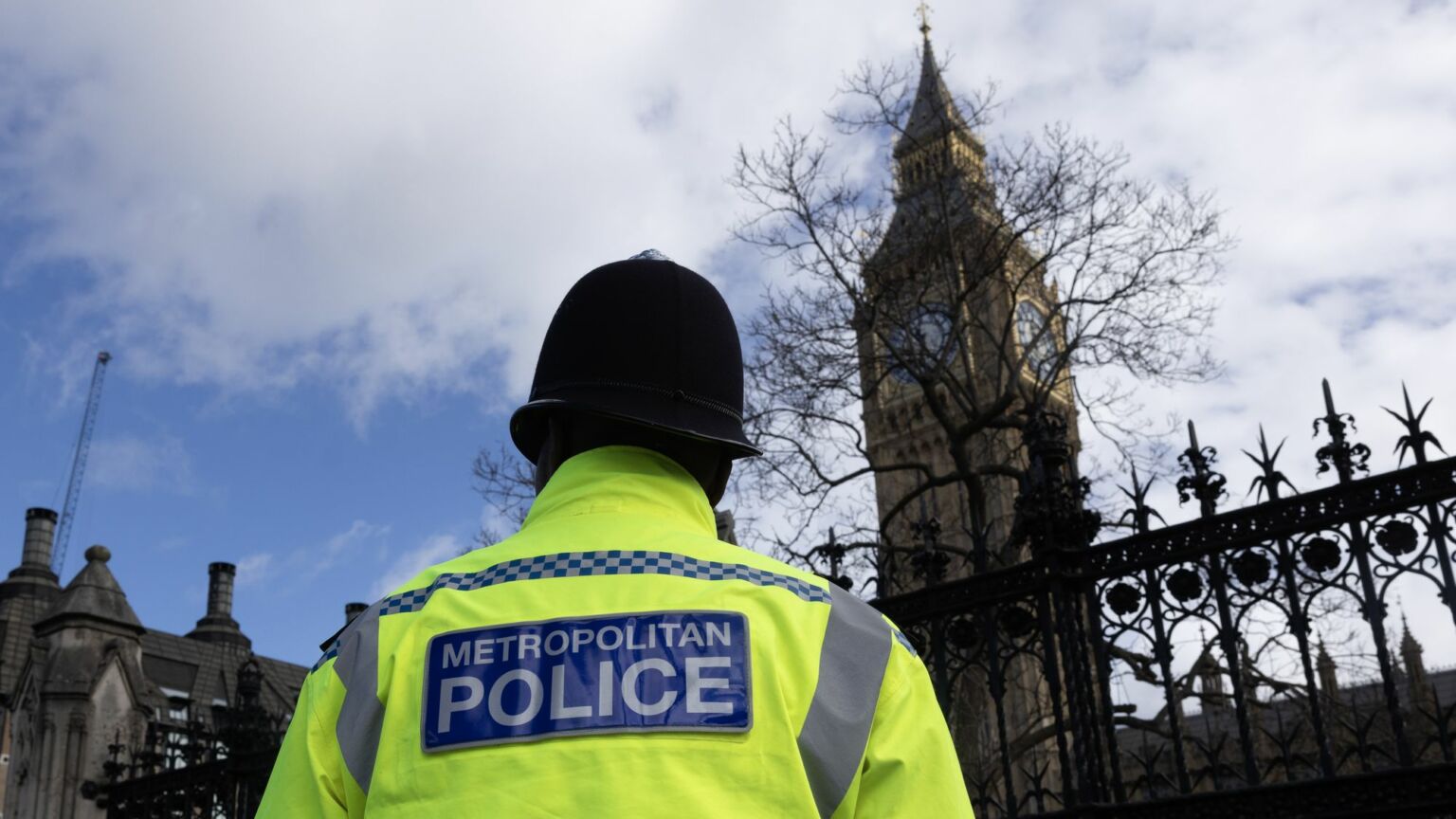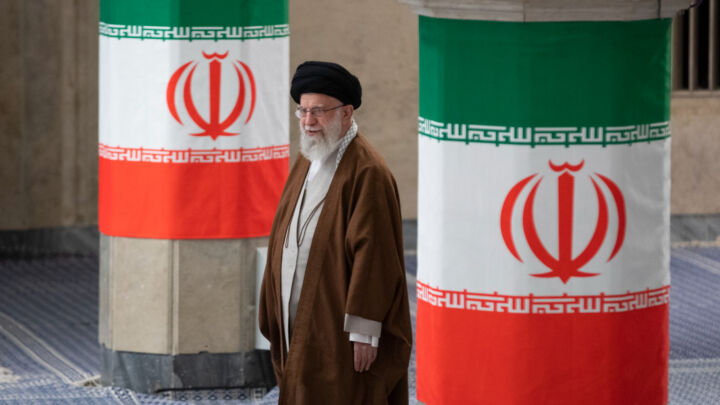Is it now a crime to make fun of Hezbollah terrorists?
Causing offence to Islamist extremists can now land you in a police cell.

Want unlimited, ad-free access? Become a spiked supporter.
The recent arrest of a Jewish man for holding a placard mocking Hezbollah’s now deceased leader, Hassan Nasrallah, has triggered outrage. It has also raised serious questions about the Metropolitan Police’s approach to policing protests in London, particularly those involving extremist or anti-Semitic elements.
According to the Telegraph, the man was arrested and charged at a demonstration in Swiss Cottage, north-west London, in September. His ‘crime’ was to be in possession of a sign depicting Nasrallah alongside text that read ‘beep, beep, beep’ – a reference to an Israeli operation days earlier, where dozens of Hezbollah fighters were killed through the remote detonation of pagers. The man was charged with ‘causing racially or religiously motivated harassment’. The charges were later dropped by the Crown Prosecution Service due to insufficient evidence and the Met have issued an apology.
Hezbollah is not a race or a religion, but rather a designated terrorist organisation under UK law. Criticising its leaders cannot reasonably be considered ‘hate speech’ – some might, in fact, consider it a civic responsibility. Yet the Met decided to arrest a man for doing precisely this. Understandably, the question many are now asking is: whose side are they on?
Hezbollah has a decades-long record of terrorism. This includes the murder of hundreds of Western servicemen (a 1983 attack in Beirut killed close to 300 US and French troops), repeated bombings of embassies and institutions linked to Israel, and the kidnapping of more than 100 foreign nationals – including British citizens – during Lebanon’s civil war. It used Hamas’s pogrom on 7 October 2023, and Israel’s subsequent war in Gaza, as a pretext to indiscriminately bomb northern Israel, displacing tens of thousands of Israeli civilians. Hezbollah has blood on its hands, hence its designation in UK law as a terrorist organisation.
Disturbingly, the Met’s arrest of the man who mocked Nasrallah was not an isolated incident. Criticising Hamas, which is also a proscribed terror group, can get you in trouble, too. Iranian dissident Niyak Ghorbani was arrested in central London last year while holding a banner that said ‘Hamas is terrorist’. Videos show him holding his sign aloft and quickly being rounded on by ‘pro-Palestine’ protesters. Yet the police, instead of coming to his defence, decided to arrest him and take away his sign.
I have also had encounters with the Met that I would rather forget. In May last year, I was arrested and charged over a fleeting interaction with a pro-Palestinian activist in London. A group of five Met officers forcibly restrained me, pinning my arms behind my back and lowering my head towards the ground.
The Met does not operate in a vacuum. It is directly accountable to London mayor Sadiq Khan and to UK home secretary Yvette Cooper. So far, both have been conspicuously silent on the police’s failings. This inaction is particularly hypocritical coming from Khan. As mayor, he has repeatedly pledged to protect London’s communities from hate and extremism. It seems he needs to protect them from the Met, first and foremost.
None of these cases has ever made it to court. The CPS dropped the charges against the anti-Hezbollah protester and against myself. Ghorbani was ‘de-arrested’ and not charged. But the damage had already been done. Having charges dropped does not compensate for being arrested, held in a cell overnight, having your house raided or being out of pocket for legal fees.
This has a clear chilling effect on public debate, too. Jewish and Iranian communities, where I come from, are increasingly fearful of expressing support for Israel or criticising Islamist extremism in public spaces, knowing how the Met might react.
Clearly, these arrests cannot all be coincidental mistakes. A public inquiry into Met training and procedures is a must. There also needs to be accountability for senior officers, and clear guarantees that the police will uphold the law.
Because if we are arresting citizens for criticising terrorists, something has gone very, very wrong in Britain.
Potkin Azarmehr is an Iranian activist and journalist who left Iran for the UK after the revolution of 1979.
You’ve hit your monthly free article limit.
Support spiked and get unlimited access.
Support spiked and get unlimited access
spiked is funded by readers like you. Only 0.1% of regular readers currently support us. If just 1% did, we could grow our team and step up the fight for free speech and democracy.
Become a spiked supporter and enjoy unlimited, ad-free access, bonus content and exclusive events – while helping to keep independent journalism alive.
Monthly support makes the biggest difference. Thank you.








Comments
Want to join the conversation?
Only spiked supporters and patrons, who donate regularly to us, can comment on our articles.